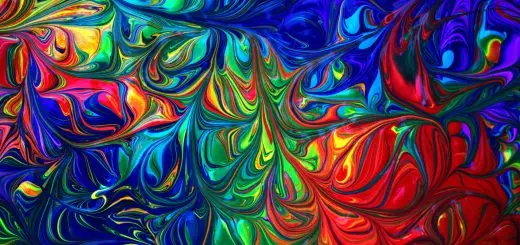Exploring Archetypal Wisdom: Keys to Self-Discovery and Growth

Looking for more amazing products? Check out our online store and explore our collection here! Happy shopping!
Before diving in, please note: This post is for informational purposes only. If you’d like to know more about how we approach topics, feel free to check out our friendly Disclaimer Page.
Hey there, amazing readers! 
We’re committed to delivering quality posts, and your support (even just sticking around despite the ads) means everything to us. So, bear with us, and thanks for helping us keep the good vibes rolling. Now, on to the fun stuff!
TRANSLATE BUTTON AT THE END OF THE ARTICLE
Overview
Archetypal wisdom offers a profound and transformative path to self-discovery and personal growth.
Understanding the power of archetypes and their influence on our thoughts, behaviors, and relationships can unlock hidden aspects of ourselves and lead to a deeper understanding of the human experience.
With roots in ancient mythology and psychology, archetypes represent universal patterns and symbols that reside in the collective unconscious.
This article delves into the origins and meaning of archetypes, examines Carl Jung’s contributions to archetypal psychology, explores the most common archetypes and their traits, and discusses how archetypes influence various aspects of our lives.
Additionally, it delves into embracing the shadow, the hero’s journey, connecting with the divine, and integrating archetypal wisdom into daily life for personal growth.
Understanding the Power of Archetypes in Personal Development
Archetypes are universal symbols and patterns that are deeply ingrained in the human psyche.
They represent fundamental aspects of the human experience and can be found in mythology, folklore, and religious texts across cultures.
By understanding and working with archetypes, individuals can tap into the collective unconscious and gain valuable insights into their own personalities, motivations, and desires.
Archetypes provide a framework for self-reflection and offer guidance on how to navigate life’s challenges and achieve personal growth.
Uncovering the Origins and Meaning of Archetypes
The concept of archetypes dates back to ancient civilizations, where they were used to explain the mysteries of human existence.
Swiss psychiatrist Carl Jung further developed the idea of archetypes in the early 20th century, emphasizing their role in shaping the human psyche.
According to Jung, archetypes are innate and exist in the collective unconscious, a vast reservoir of shared human experiences and knowledge.
They are universal and transcend cultural boundaries, representing core aspects of human nature that are common to all individuals.
Examining Carl Jung’s Contributions to Archetypal Psychology
Carl Jung’s contributions to archetypal psychology revolutionized the field of psychology and paved the way for a deeper understanding of the human psyche.
He believed that archetypes are the building blocks of the collective unconscious and play a crucial role in the individuation process – the journey towards self-realization and wholeness.
Jung identified numerous archetypes, including the self, the persona, the shadow, the anima/animus, and the wise old man/woman.
His work on archetypes has had a profound impact on various fields, including psychology, literature, art, and spirituality.
Identifying the Most Common Archetypes and Their Traits
While the number of archetypes is vast, some are more prevalent and recognizable than others.
Here are some of the most common archetypes and their traits:
The Hero: Brave, noble, and driven by a sense of purpose, the hero archetype embodies courage and strives to overcome obstacles to achieve greatness.
The Lover: Passionate, sensual, and in touch with their emotions, the lover archetype represents deep connections, intimacy, and the pursuit of pleasure.
The Sage: Wise, knowledgeable, and introspective, the sage archetype embodies wisdom and seeks truth and understanding.
The Innocent: Pure, optimistic, and childlike, the innocent archetype represents a sense of wonder, trust, and faith in the world.
The Rebel: Independent, unconventional, and rebellious, the rebel archetype challenges the status quo and seeks freedom and individuality.
The Caregiver: Compassionate, nurturing, and selfless, the caregiver archetype embodies empathy and unconditional love.
How Archetypes Influence Our Thoughts, Behaviors, and Relationships
Archetypes exert a significant influence on our thoughts, behaviors, and relationships.
They shape our perceptions, motivations, and choices, often operating at a subconscious level.
For example, the hero archetype may drive individuals to take risks and strive for achievement, while the caregiver archetype may inspire acts of kindness and selflessness.
Understanding the archetypes that are at play in our lives can offer valuable insights into our patterns of thinking and behavior, enabling us to make conscious choices that align with our values and aspirations.
Embracing the Shadow: Exploring the Dark Side of Archetypes
Archetypes not only encompass positive aspects but also include a shadow side – the hidden and often repressed aspects of our personalities.
Jung believed that integrating the shadow is essential for achieving wholeness and personal growth.
By acknowledging and embracing our shadow, we can harness its energy and transform it into positive qualities.
For example, the shadow of the hero archetype may manifest as arrogance or aggression, but by acknowledging and integrating this shadow, one can cultivate humility and assertiveness in a healthy way.
The Hero’s Journey: Transformative Paths to Self-Realization
The hero’s journey is a common narrative pattern found in myths, literature, and movies.
It represents the transformative path to self-realization and growth.
The hero archetype embarks on a quest, faces numerous challenges and trials, and ultimately emerges transformed and enlightened.
This journey mirrors our own personal growth and invites us to step out of our comfort zones, confront our fears, and embrace the unknown.
By following the hero’s journey, we can tap into our inner strength and resilience, and evolve into our best selves.
Unleashing the Inner Sage: Embodying the Wise Old Man/Woman
The archetype of the wise old man/woman represents wisdom, insight, and guidance.
By connecting with this archetype, we can access our inner wisdom and intuition.
The sage archetype encourages us to seek knowledge, reflect on our experiences, and find meaning in life.
Embodying the wise old man/woman allows us to make wiser decisions, cultivate self-awareness, and guide others on their own paths of self-discovery.
Connecting with the Divine: Archetypes in Spirituality
Archetypes play a significant role in spirituality, as they provide a symbolic language to understand and connect with the divine.
Many religious traditions and spiritual practices incorporate archetypal symbolism to convey deeper truths and facilitate spiritual growth.
For example, the archetype of the divine child represents innocence and purity, while the archetype of the divine mother embodies nurturing and unconditional love.
By recognizing and invoking these archetypes, individuals can deepen their spiritual connection and cultivate a sense of transcendence.
Archetypes in Art and Literature: Expressing Collective Unconscious
Art and literature have long been vehicles for expressing archetypal themes and symbols, offering a window into the collective unconscious.
From ancient cave paintings to contemporary novels, archetypes are woven into creative works, evoking universal emotions and experiences.
By engaging with art and literature that explores archetypal themes, individuals can gain insights into their own inner world and connect with the shared human experience.
Integrating Archetypal Wisdom into Daily Life for Personal Growth
To fully harness the power of archetypal wisdom, it is essential to integrate it into daily life.
This can be done through self-reflection, journaling, dream analysis, and engaging in creative practices such as art or writing.
By identifying the archetypes that resonate with us and consciously embodying their qualities, we can align our thoughts, behaviors, and relationships with our authentic selves, fostering personal growth and self-discovery.
Embracing Wholeness: Balancing and Harmonizing Archetypes
An essential aspect of archetypal wisdom is the recognition that we encompass multiple archetypes within ourselves.
Embracing our wholeness means acknowledging and balancing the various archetypal energies present within us.
For example, integrating the lover archetype with the sage archetype allows for a harmonious expression of passion and wisdom.
By embracing wholeness, we can live authentically, navigate life’s challenges with grace, and embark on a journey of self-discovery and growth.
Conclusion
Exploring archetypal wisdom provides a profound pathway to self-discovery and personal growth.
By understanding the power of archetypes and their influence on our thoughts, behaviors, and relationships, we can unlock hidden aspects of ourselves and gain valuable insights into the human experience.
From Carl Jung’s contributions to the identification of common archetypes and their traits, to exploring the shadow and embarking on the hero’s journey, archetypal wisdom offers a transformative framework for personal growth.
By integrating archetypal wisdom into our daily lives and embracing our wholeness, we can cultivate self-awareness, tap into our inner wisdom, and embark on a journey of self-realization and growth.

The Enlightenment Journey is a remarkable collection of writings authored by a distinguished group of experts in the fields of spirituality, new age, and esoteric knowledge.
This anthology features a diverse assembly of well-experienced authors who bring their profound insights and credible perspectives to the forefront.
Each contributor possesses a wealth of knowledge and wisdom, making them authorities in their respective domains.
Together, they offer readers a transformative journey into the realms of spiritual growth, self-discovery, and esoteric enlightenment.
The Enlightenment Journey is a testament to the collective expertise of these luminaries, providing readers with a rich tapestry of ideas and information to illuminate their spiritual path.
Our Diverse Expertise
While our primary focus is on spirituality and esotericism, we are equally passionate about exploring a wide range of other topics and niches 

To ensure we provide the most accurate and valuable insights, we collaborate with trusted experts in their respective domains 
Our blog originally focused on spirituality and metaphysics, but we’ve since expanded to cover a wide range of niches. Don’t worry—we continue to publish a lot of articles on spirituality! Frequently visit our blog to explore our diverse content and stay tuned for more insightful reads.
Hey there, amazing reader! 
Check out our store here and take a peek at some of our featured products below! Thanks for being awesome!











